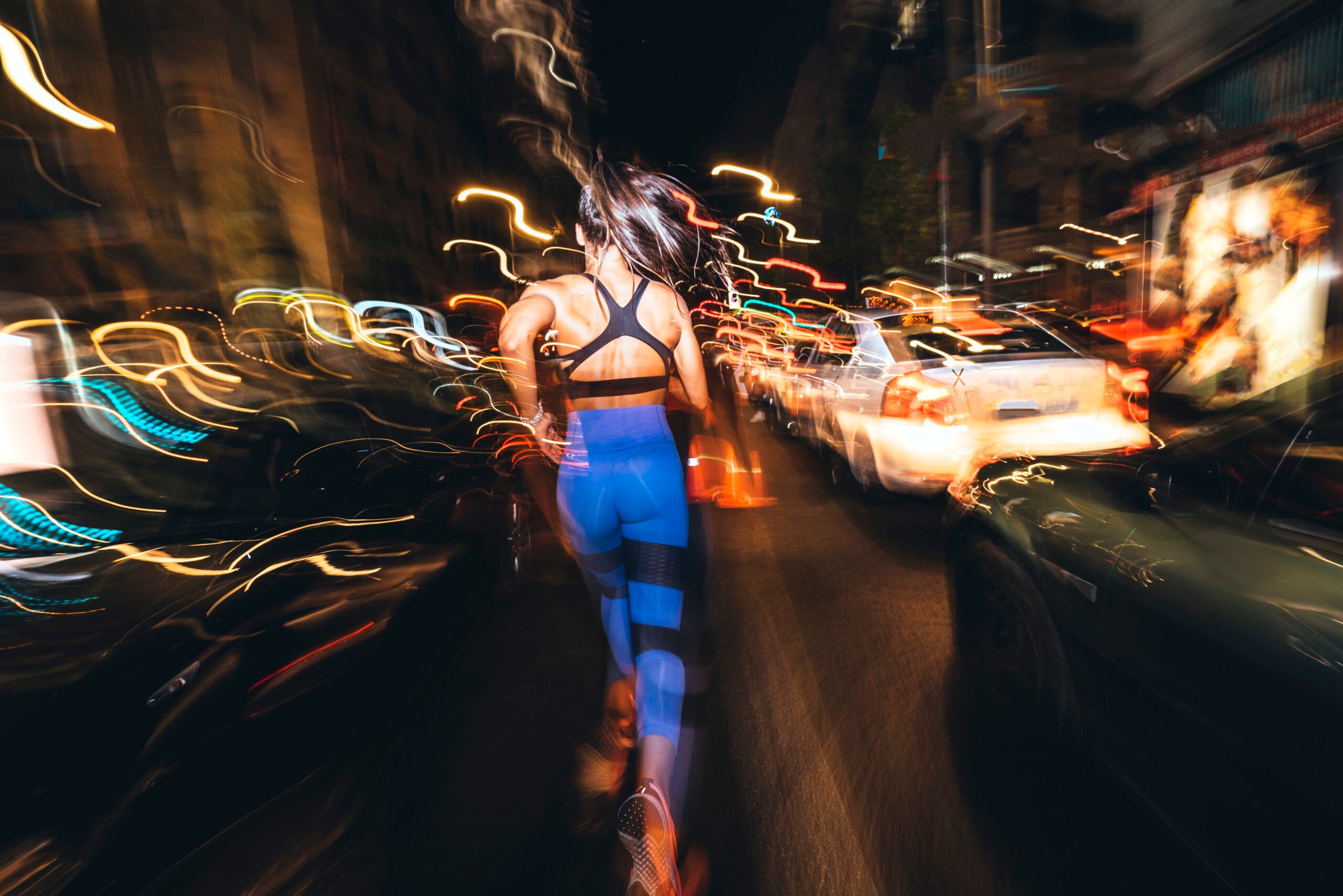Feeling dizzy while running? It’s a common experience for many runners, especially when pushing hard during a workout or after long runs.
Let’s face it: feeling lightheaded or dizzy while running can really scare the daylights out of you.
Over the years, I’ve seen plenty of runners, newbies and seasoned pros alike, struggle with this.
I cannot emphasize the importance of knowing the root cause of this dizziness, whether it’s dehydration, low blood sugar, or something else, and then taking steps to address it.
In this article, I’ll break down the potential causes of feeling dizzy while running, how to prevent it, and what to do if you experience it during your runs. If you’re ready to dive in, let’s get started.
Feeling Dizzy While Running: What’s Going On?
First off, getting dizzy doesn’t always signal a major problem.
In most cases, dizziness during a run can be attributed to dehydration, low blood sugar, or overexertion. These are all manageable if you know what to look out for.
But, if that dizziness comes with serious stuff like chest pain or major headaches, it’s time to see a doctor.
Last time I felt woozy during a run was a few weeks ago on a really hot and humid day.
It was around mile 10 of a 20-mile long run. I was feeling strong, and suddenly, the sidewalk seemed to shift under me. My vision blurred, and I had to stop and hold onto a lamppost.
I know what I did wrong. I was pushing hard in temperatures bit too extreme. Don’t make my mistake (more on this later).
Symptoms to Watch Out For
When dizziness strikes during or after a run, it might come with other symptoms that can give you clues as to what’s going on. These include:
- Lightheadedness: Feeling like you might faint or your head is spinning.
- Poor balance: Difficulty staying steady on your feet.
- Blurry vision: Sudden changes in vision can indicate an issue with blood pressure or oxygen levels.
- Nausea: Feeling queasy or sick to your stomach.
- Weakness: Feeling unusually tired or weak during or after your run.
If you experience these symptoms, it’s time to take action and figure out what’s causing them so you can get back to running safely.
These symptoms can manifest suddenly while running, just after a workout, or build slowly over time.
Seek medical attention if you’re experiencing any of these symptoms:
- Slurred speech
- Severe and chronic headache
- Sudden deafness in one ear
- Numbness
- Extreme exhaustion
- Chest pain and/or palpitations
- Projectile vomit
How To Prevent Getting Dizzy While Running
Here are some of the most common reasons runners feel dizzy, along with tips on addressing each one.
Blood Pressure Drops
One of my biggest mistakes was skipping a proper cool-down. After a long run, I’d jump straight into a shower and wonder why I felt dizzy.
Here’s what I found out. When you’re running, your heart works hard to pump blood to your muscles, and your blood pressure increases slightly. But if you stop running abruptly, your blood pressure can drop suddenly, causing lightheadedness or dizziness.
How to prevent it:
Cool down gradually instead of stopping your run abruptly. This means slowing down to a jog or walk for 5 to 10 minutes before you stop completely. This gives your body time to adjust, and your heart rate and blood pressure will gradually return to normal. Think of it as easing your body back into a resting state.
Overexertion
Pushing yourself too hard, especially during high-intensity workouts or long runs, can lead to dizziness. When you overexert yourself, your heart rate can skyrocket, and the body struggles to keep up with the increased demand for oxygen. Combined with heavy sweating, you can experience lower blood pressure and dizziness.
Like many runners, I used to think pushing harder meant progress. But after too many episodes of feeling faint, I realized that going all out every time wasn’t doing me any favors.
A high-intensity workout is good every now and then, but overdoing it just invites problems. Whenever I feel that heaviness or dizziness creeping in, I slow down, catch my breath, and remind myself that there’s no point in pushing if I can’t finish strong.
How to prevent it:
Be mindful of your limits. It’s okay to push yourself but always listen to your body. If you feel yourself getting lightheaded, it’s a sign that you need to slow down. Take a break, breathe deeply, and give your body time to recover. Building intensity gradually will help prevent overexertion and dizziness.
Dehydration & Dizziness During A Run
Dehydration is a leading cause of dizziness, especially during long runs or when running in hot weather. When you sweat, your body loses water and essential electrolytes. If you don’t replace those fluids, your blood volume can drop, leading to lower blood pressure and dizziness.
How to prevent it:
Stay well-hydrated before, during, and after your run. Aim to drink plenty of water throughout the day, especially before heading out for a run. Bring water with you on long runs or hot days and take small sips regularly—about an ounce or two every 15 to 20 minutes. For even more hydration benefits, consider electrolyte drinks to help replenish lost salts.
Low Blood Sugar
Your body relies on glucose (sugar) as fuel when you run. If you haven’t eaten enough before your run, your blood sugar levels can drop, leaving you feeling weak, dizzy, or shaky. This is especially true if you run long or push yourself hard on an empty stomach.
How to prevent it:
Don’t run on an empty stomach. Have a light snack 30 minutes to an hour before you head out. Something like a banana with peanut butter, yogurt with fruit, or a small handful of nuts can provide the energy you need to maintain steady blood sugar levels during your run.
Improper Breathing
Dizziness can also come from not breathing right while you run. Many runners, especially beginners, tend to take shallow breaths or hold their breath while running, which limits the amount of oxygen flowing to the brain and muscles.
How to prevent it:
Focus on your breathing. Try to sync your breathing with your steps—one popular technique is the 3:2 ratio, where you inhale for three steps and exhale for two. This helps you take deeper, more controlled breaths and ensures you get enough oxygen. If you feel yourself getting dizzy, slow down and take deeper breaths.
Dealing with Treadmill Dizziness
Feeling dizzy after stepping off the treadmill? Then let’s talk about it.
Treadmills definitely have their own set of challenges.. The first time I experienced treadmill dizziness, I thought I was tired. But after some reading, I realized it was the abrupt transition from a moving belt to a still floor.
Now, I make sure to gradually slow down at the end of each treadmill session, taking a few minutes to walk it out before hopping off. It helps my brain and body stay in sync.
How to prevent it:
Don’t worry.
This type of vertigo is not dangerous and often goes away after a few treadmill runs.
It’s just a matter of practice and getting your body used to the machine.
One thing you can do if you typically feel dizzy after using a treadmill is to slow down gradually.
Reduce your pace over three to five minutes until you’re walking comfortably and breathing normally.
Then, and only then, get off the machine.
Get into a recovery position, or simply sit down.
Rehydrate.
What To Do If You Feel Lightheaded When Running?
Don’t try to be a hero if you ever feel dizzy mid-run.
Hit the emergency red stop button and stop down.
Next, elevate your legs above your heart, placing your feet on a wall, chair, or bench.
This way, the blood can circulate back into your heart and brain.
Try not to push your body more than it can handle.
It’s key to manage dizziness while exercising right.
Ignore your symptoms, and it will get worse.
Stop, find some shade, and elevate your legs. It’s something I learned the hard way. Pushing through only made things worse. Taking a few moments to recover helps you avoid a fainting spell and ensures you can get back to running safely another day.
Before picking up running again, try to rule out the cause of the lightheadedness and a practical solution.
If you adjust your training approach but continue to dizziness while exercising, make an appointment with your doctor ASAP.
When is it Time to See a Doctor?
In most cases, dizziness while running is manageable with a few adjustments. However, it’s time to see a doctor if you’re experiencing frequent or severe dizziness. These could be signs of a more serious underlying condition, such as heart or neurological issues, that need medical attention.
Frequently Asked Questions About Dizziness While Running
I know that you have more pressing questions about feeling woozy while working out. Let me try to address some of them.
What should I do if I feel dizzy while running?
If you start to feel dizzy while running, the best thing you can do is slow down and find a safe spot to stop. Take deep breaths, sip some water if you have it, and wait until the dizziness subsides. It’s essential to let your body recover rather than pushing through—ignoring dizziness can lead to a fall or make things worse.
Make sure to include a cool-down period at the end of your run, as it helps gradually lower your heart rate and blood pressure, which can prevent dizziness.
Is dizziness normal for beginner runners?
Yes, beginners sometimes experience dizziness, especially if they’re pushing harder than their bodies are used to or haven’t eaten enough beforehand. Running is an intense cardiovascular workout, and your body needs time to adapt to this new level of exertion. Starting with shorter, slower runs and gradually building up your endurance can help reduce dizziness.
My best advice? Begin with a few minutes of brisk walking or light jogging to ease your body into the activity. If dizziness persists, try eating a light snack 30-60 minutes before your run.
How can I tell if dizziness is a sign of something serious?
While dizziness is often caused by simple factors like dehydration, low blood sugar, or overexertion, it’s essential to listen to your body. If you frequently experience dizziness, or if it’s accompanied by symptoms like chest pain, difficulty breathing, nausea, or loss of consciousness, it may be a sign of an underlying health issue. In such cases, consult a healthcare provider to rule out any serious conditions.
Share Your Tips for Preventing Dizziness While Running!
Dizziness during a run can be a real hurdle, and sometimes the best advice comes from fellow runners who’ve been through it.
Have you ever felt dizzy on a run? Share your experiences and any tips that have worked for you in the comments below!
Whether it’s a hydration trick, a pre-run snack, or a cool-down routine, your insights could make all the difference for someone else!


